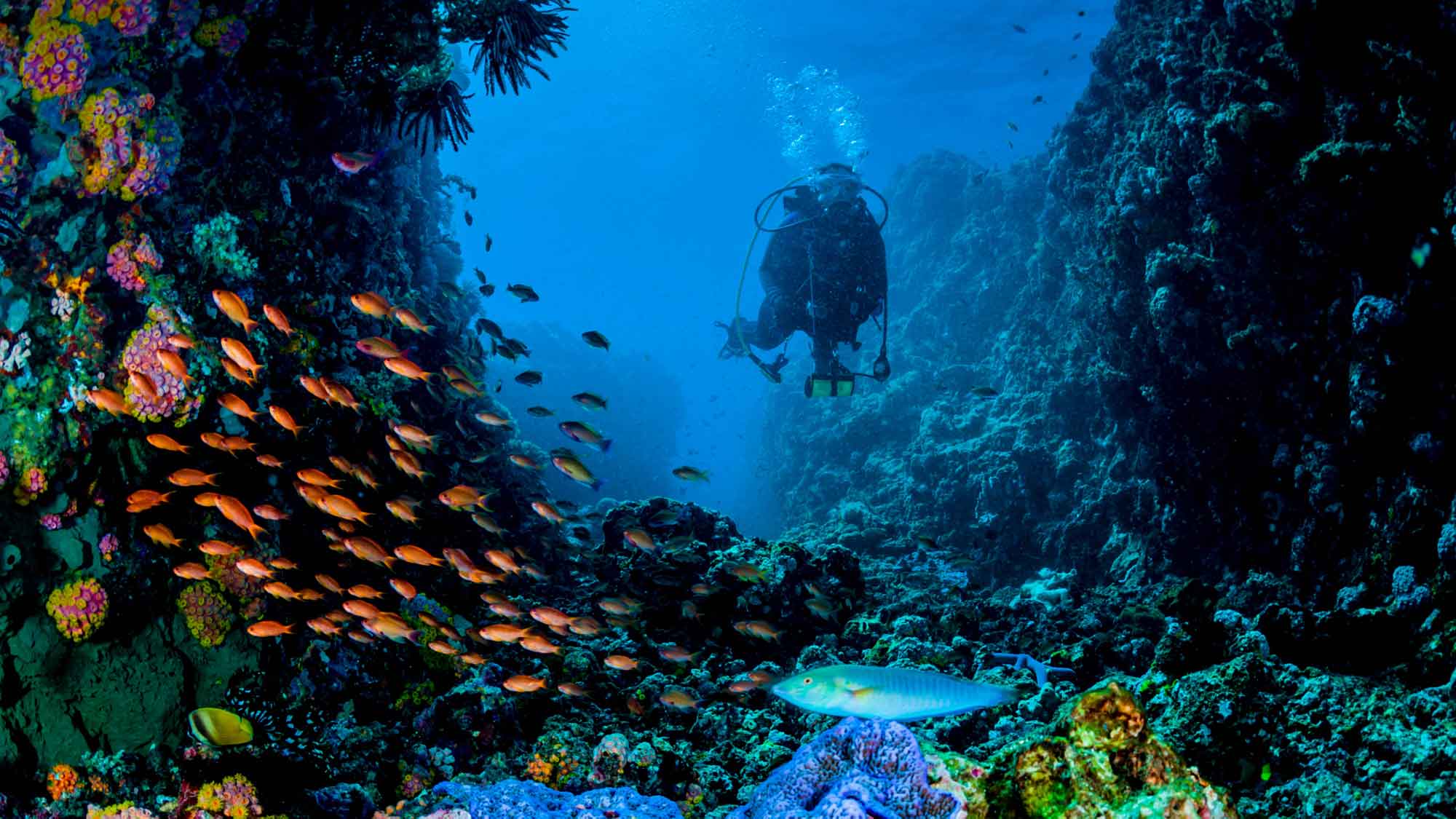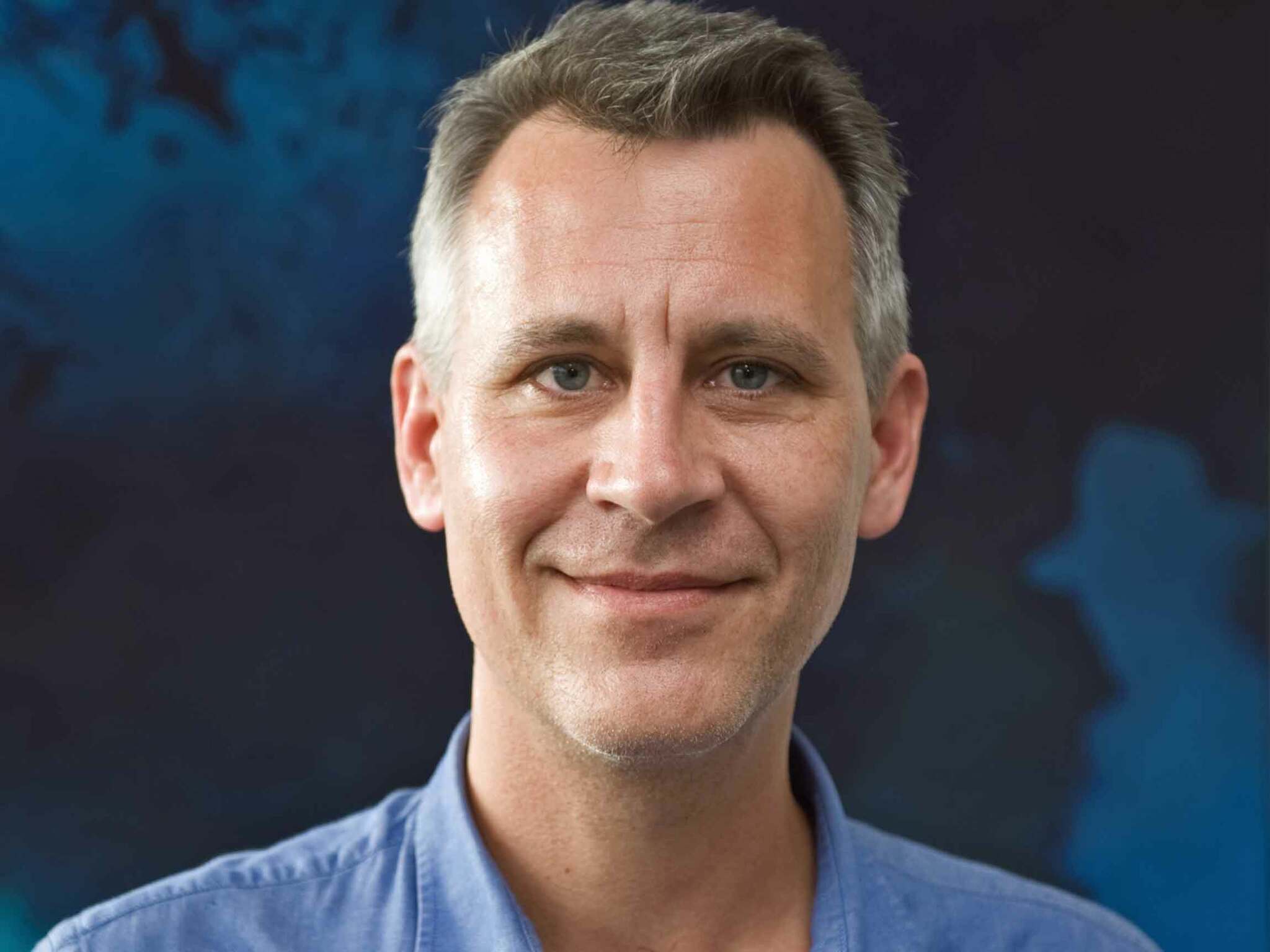
© Jett Britnell / Ocean Image Bank
Leading Coral Reef Conference for the First Time in Bremen
For the first time, the International Coral Reef Symposium is being held in Europe – in Bremen. There is a wealth of expertise in one place.
From July 3 to 8, 2022, around 1,000 participants discuss the importance of and threats to coral reefs. At the International Coral Reef Symposium (ICRS), they discuss the latest findings and how to better protect these important ecosystems. Because, globally, less than 30 percent of coral reefs remain in a comparably good condition. Why is the University of Bremen organizing the ICRS? Because Bremen State is a scientific hub in marine research.
The ICRS is by far the most important international conference dealing with coral reef ecosystems. Since 1967, participants have usually met every four years and include researchers who present their current scientific findings, but also participants from the fields of costal management, environmental protection, and politics. The current conference holds particular importance as we are experiencing a global coral reef crisis. The existence of these ecosystems is endangered. The main causes are climate change, overfishing, and pollution of the oceans.
For the first time in its 50-year history, the ICRS is being held in Europe – in Germany – in Bremen. The marine researcher Professor Christian Wild from the University of Bremen successfully applied to the International Coral Reef Society to organize the ICRS. Hosting the 15th International Coral Reef Symposium in Europe also to demonstrate that the European countries are taking on responsibility. After all, it is the industrial countries with their high CO2 emissions, which are the main contributors to the climate crisis.
With his Marine Ecology working group, Christian Wild has been dealing with the topic of sensitive ecosystems for several years. “The current numbers portray a dramatic situation,” says the scientist. In 2016, around 30 percent of the stony corals along the Australian Great Barrier Reef were victims of the most recent large case of coral bleaching. Shortly before the outbreak of the COVID-19 pandemic in February / March 2020, the stony corals in the South of the Great Barrier Reef, which had previously been largely spared from coral death, bleached out over a large area. Thus, the threatening situation, for the reef with its 2,600 kilometers – the largest coral reef on the planet – is further aggravated, according to Wild. “Globally, 30 percent of our coral reefs have disappeared, 50 percent are in grave danger, and only 20 percent remain in a comparably good condition.”
Premiere: World Coral Reef Conference in Bremen to be Climate Neutral
The 15th ICRS in Bremen is the first ICRS to be conducted in a climate-neutral manner. This goal was achieved through a comprehensive and two-step green strategy. Carbon dioxide emissions on-site were minimized. And the unavoidable carbon dioxide emissions, mainly caused by the participants’ travel, are offset by supporting a range of marine climate protection projects. Professor Wild stated: “We are very proud that our green strategy has been so successful. Coral reefs are early-warning systems for climate change, so it is especially important that coral reef events do not contribute to climate change. Many thanks to the United Nations Environment Programme, which has been instrumental in supporting our green strategy.”
Bremen Is a Scientific Hub in Marine Research

© Harald Rehling / Universität Bremen
Christian Wild is not the only one who works in marine research in Bremen. The region has a wealth of expertise in marine research and an excellent network of partners. At the university, the neighboring non-academic institutions at the Bremen Technology Park, and throughout the region, researchers in oceanography and environmental physics, marine geosciences, marine biology and chemistry are collaborating across disciplines. Legal sciences, social sciences, and humanities are also closely linked to the field of marine research. Marine, polar and climate research are high-profile areas at the University of Bremen, and are strategically promoted. MARUM – Center for Marine Environmental Sciences at the University of Bremen is the home of the “The Ocean Floor – Earth’s Uncharted Interface” Cluster of Excellence. Here, researchers cooperate closely not only with local institutions but also with international partners. Such a range of expertise at one location is unparalleled in marine sciences in Germany and is only realized at very few locations worldwide. Coral reef research highlights this and various actors from the University of Bremen participate in it – for example the BreMarE – Bremen Marine Ecology and MARUM. Other Bremen-based non-university institutions also deal with coral reefs, such as the Leibniz Centre for Tropical Marine Research (ZMT), the Max Planck Institute for Marine Microbiology (MPI), and the Alfred Wegener Institute for Polar and Marine Research (AWI) in Bremerhaven. They all contribute to the shaping of the 15th International Coral Reef Symposium (ICRS) in Bremen through delegates in the organizing committee.
Further Information:
Further information on the coral reef conference is available here: www.icrs2022.de
Further information on Professor Christian Wild’s area of work at the University of Bremen is available here: www.uni-bremen.de/marine-ecology